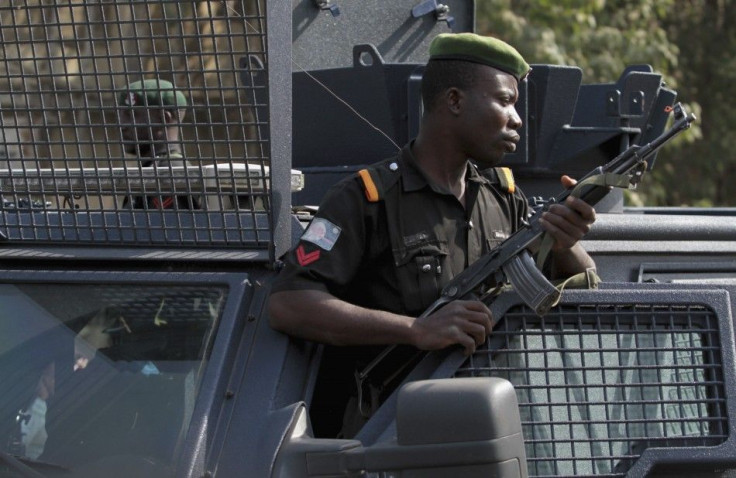Boko Haram is the Main Task for Nigeria's new Police Chief

Nigerian President Goodluck Jonathan fired the national police head, Inspector-General Hafiz Ringim, over recent Boko Haram attacks.
Making good on an earlier promise, Jonathan made Ringim resign after suspected Boko Haram member Kabir Sokoto escaped from prison last week. Sokoto is believed to be the mastermind behind the Christmas day church bombings that killed 50 people
Jonathan, whose government has been ineffective at stopping the Islamic militant group, also sacked six police deputies on Wednesday.
Perhaps more significant was the appointment of Assistant Inspector General of Police (IGP) Mohammed Abubakar as the head of Nigeria's police. Boko Haram's main goal is to make Nigeria into an Islamic state, and putting a Muslim in charge of the police force could help ease the current religious divide in the country.
Boko Haram has thrived in the Muslim north, where many people feel disenfranchised by Jonathan's Christian government. Critics of his policies have suggested that Jonathan should place more Muslims into high-ranking government positions, and religious leaders in Nigeria have called for an open and state-led dialogue between the different faiths.
On Wednesday, the Nigerian government called the appointment of Abubakar a first step towards the comprehensive re-organization and repositioning of the Nigeria police force to make it more effective and capable of meeting emerging internal security challenges.
Abubakar has also served in the Bauchi State, a predominantly Muslim province in the north under sharia law, and has experience with the types of people who both actively and passively support Boko Haram.
“To avoid ethnic insinuations, the new IGP, who is a tested hand, has also been picked from the North. He has a mandate to address the Boko Harm menace, an anonymous source close to the government told Nigeria's The Nation on Wednesday.
Bauchi has remained relatively free of Boko Haram attacks, which are frequent in nearby Gombe and Borno states. However, a recent report alleged that Bauchi governor Alhaji Isa Yuguda has been supporting Boko Haram, giving the group monthly payments of 10 million Nigerian naira ($63,000), as well as training and security.
Yuguda has denied the claims, which were part of a larger investigation into Boko Haram's infiltration of the government.
Boko Haram's Continued Militancy
A night before Abubakar's appointment, gunmen attacked a police station in the northern city of Kano. According to eyewitness reports, the militants told civilians to go home and then threw bombs at the police station.
The next day, children and other people gathered at the site of the bombing and cheered and jumped on the burned out shells of cars. Currently, no causalities have been reported.
The attack came less than a week after Boko Haram killed 185 people during a bombing in Kano. The attack was the by far deadliest in this stage of Boko Haram's campaign.
Boko Haram has killed at least 935 people since its founding in 2009, about half of them in the past year, according to Human Rights Watch.
© Copyright IBTimes 2025. All rights reserved.





















